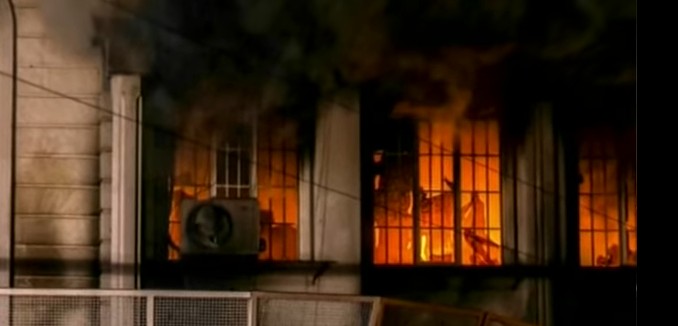Somalia ordered all Iranian diplomats to leave its borders within 72 hours, joining a growing number of countries who are severing relations with the Islamic Republic amid its escalation with Saudi Arabia, the Associated Press reported Thursday.
“This step has been taken after careful consideration and in response to the Republic of Iran’s continuous interference in Somalia’s internal affairs,” read a statement issued by Somalia’s foreign ministry. It also accused Iran of attempting to destabilize the East African nation.
Earlier this week, Bahrain and Sudan joined Saudi Arabia in cutting ties with the Islamic Republic, while the United Arab Emirates and Kuwait downgraded their own relations with Iran. A Saudi-owned news channel reported that Djibouti also ended diplomatic ties with Tehran on Wednesday, according to Reuters. The countries acted in protest of Saturday’s attack on Riyadh’s embassy by Iranian rioters, which followed Saudi Arabia’s execution of a prominent Shiite cleric.
Amir Toumaj, a research analyst at the Foundation for Defense of Democracies, reported that the Iranian regime was complicit in the embassy attack.
On the day of the cleric’s execution, media outlets and student groups linked to the Islamic Revolutionary Guard Corps (IRGC) and its Basij paramilitary called for protests at the Saudi diplomatic missions in Tehran and Mashhad the following day. The protesters there, not surprisingly, included instructors at state-run religious seminaries and Basij members.
Moreover, security at the facilities grew suspiciously lax immediately before the riots broke out. Diplomatic police had set up a security perimeter around the embassy in Tehran during the late afternoon and early evening, but when the mobs stormed the embassy that night, authorities were nowhere to be found. Law enforcement arrived and dispersed the crowd only after the building had been set on fire and photos of looting had widely circulated on social media. In Mashhad, security forces were photographed standing idle as protesters climbed the fence, set fire to the consulate, and shattered windows.
Toumaj pointed out that Iran’s security apparatus is “more than able to quash protests when regime interests are threatened,” as it did during the Green Movement protests that followed the fraudulent presidential election in 2009.
On how the Police in #Iran acts: #GreenMovement protests, 2009#Attackers of Saudi-embassy, 2015 pic.twitter.com/bsUUpCzuTI
— Damon | دامون (@DamonGolriz) January 5, 2016
According to international law, a nation’s embassy is regarded as “inviolable,” with article 22 of the Vienna Convention on Diplomatic Relations (.pdf) declaring that “the receiving State is under a special duty to take all appropriate steps to protect the premises of the mission against any intrusion or damage and to prevent any disturbance of the peace of mission or impairment of its dignity.” Despite this, Iran has failed to protect foreign missions in its territory on at least two previous occasions.
In November 1979, the American embassy was stormed by Iranian students who took 90 people, including 66 Americans, hostage. 52 of the American hostages were held for 444 days.
In 2006, rioters attacked the Danish embassy with rocks and firebombs after a Danish newspaper published cartoons depicting Islam’s Prophet Muhammad.
[Photo: CCTV News / YouTube ]




